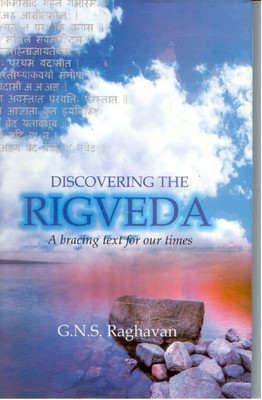Discovering the Rigveda: A Bracing Text for our times(Paperback, G. N. S. Raghavan)
Quick Overview
Product Price Comparison
About The Book: This book does not present a statistically representative sample of the subjects addressed in the hymns of the Rigveda. Repetitive praise of divinities like Agni, Indra and the Soma drink occupy a large proportion of the work; only some examples are reproduced in this book. Attention is focused instead on the most precious features of the Rigveda, which even perceptive Western scholars have not noticed adequately: the ethical orientation which was to find resonance in postSangam Tamil poetry; insight into the working of the human mind and motivation, as in the poem on the losing gambler, which anticipates Vyasa's Yudhishtira and Dostoevsky's tragic hero; bold confronting of a subject as challenging as incest; existential introspection ('What thing I truly am, I know not'); and the speculation by the Rigvedic sages, who were the world's earliest freethinkers, on the possible but not necessary existence of a Creator God. In addition to presenting the memorable features of the untampered Rigveda, this book surveys the ritualridden and casteist (not to say racist) Brahminism that supplanted the Rigvedic ethos. It also discusses the subsequent softening and humanising of Brahminism by reforming influences : the nobler Upanishads; the rationalist Charvaka thinkers; the compassionate teaching of Mahavira and Buddha; the texts on Dharma and the epics which, though mainly Brahminist in tenor, include passages with a humanist import; and the Bhakti movement. About The Author: G.N.S. Raghavan entered journalism in 1974, serving his apprenticeship under Khasa Subba Rau, Freedom fighter, who was at that time editorpublisher of the English weekly Swatantra, Madras. Coming to Delhi in 1949 join the Thought weekly under the editorship of Arthur Moore, he worked for the Indian Express as political correspondent in Delhi for more than five years. He later served in several media units of the Ministry of Information & Broadcasting and was Secretary of the Second Press


